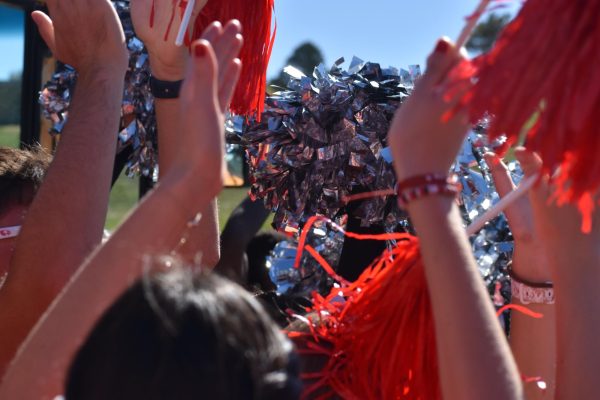Caution: Banned Books
This year, Banned Books Weeks was held from September 18 to 24, 2022.
Banned Books Week was launched as a program in 1982 by the American Library Association. They created this program to bring awareness to the books that are being threatened to be removed from the shelves of schools and public libraries.
After forty years, books are still being challenged and banned from libraries. The books that are challenged or banned are the ones that include controversial subjects, including LGBTQ+ topics, sexual content, race, and abuse.
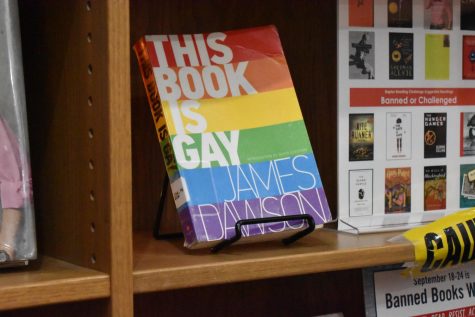
“We view Banned Books Week as a celebration. We view it as a way to embrace your ability to be able to choose what books are right for you and to read them. What is right for you may be different for somebody else, and that is the beauty of it,” EHS librarian Hollie Hawkins said.
Even though these topics may be uncomfortable for some people, the books are there to create a diverse representation of people in the community. Senior Kate Wilson believes that books are a chance for her to learn about the diverse communities around the world.
“Books for me are an avenue to different walks of life. And though I will only ever be myself for my whole life, I can gain sympathy and insight. I will also become educated on the people around me through reading books,” Wilson said.
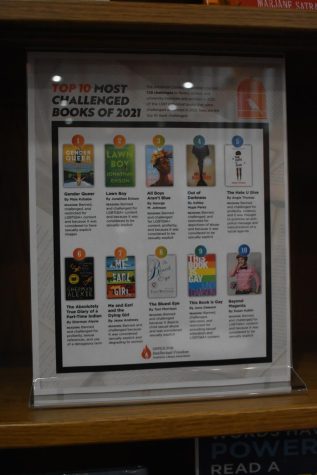
The diverse collections of books, whether they are challenged or banned, provide an opportunity for people to learn about the hardships that other people have lived through. It may be something they never will experience, but it allows people to become educated about the people around them.
“When you learn about other people’s lives, it makes you a better person in a way that you are more empathetic. If all the books are taken away, it makes us less educated and less emphatic for their experience because we don’t know what they exactly went through,” Hawkins said.
Not only do books provide different perspectives on life, but you may also see yourself being represented in the books. You may not resonate with all the books you read, but you will find a book that tells a story that may be similar to your life. Banning or challenging books limits the diversity of a library’s collection of books. It becomes difficult for people to find stories that represent their life because banned authors’ “inappropriate” opinions and experiences are silenced.
“When a book is banned or challenged, it is taking the option away from someone to be able to read that book. When a book is taken out of circulation, or off the shelves, ultimately it is telling whoever would have seen themselves in that book that their experience does not matter and that they do not matter,” Hawkins said. It is important to bring awareness to the community that all books have a place on the shelves of libraries.
“Personally, I think every work of literature has its place on the shelves, and every person should have an equal chance to read what they please,” Wilson said.
Not only are novels taken off the bookshelves, but there are also picture books being challenged. When a book is challenged, it does not matter if it is a children’s book or a memoir. The only thing that raises questions about books is the content.
“Picture books are also being challenged. One of the picture books that was banned was And Tango Makes Three. It’s about two male penguins who raise a baby penguin. It was banned due to the LGBTQ+ content,” Hawkins said.
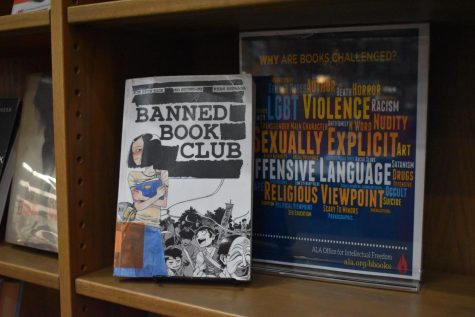
The issue of banned books is especially prevalent within our district right now. According to the Aurora Sentinel, the book Let’s Talk About It: The Teen’s Guide to Sex, Relationships, and Being a Human by Erika Moen and Matthew Nolan has been pulled out of circulation from school libraries, including our own. A parent claimed that the book was inappropriate for students due to the sexual education it provided, and the book is now being re-evaluated.
Books that you might find in a public school library are not by coincidence. Careful consideration goes into choosing what books go on the shelf. Librarians at EHS hope to have a diverse collection of books so that the books may represent all types of people that attend EHS.
“Professionally, we make decisions about what to include in our collection based on many different factors. Ultimately, what we feel responsible for is providing resources and books for all the experiences lived. It is not just one section of society,” Hawkins said.
With different varieties of books on the EHS bookshelves, the community can explore and expand their knowledge. Banning books will limit learning opportunities. Everyone in the community needs to bring awareness that all books deserve a place on the bookshelves of libraries.
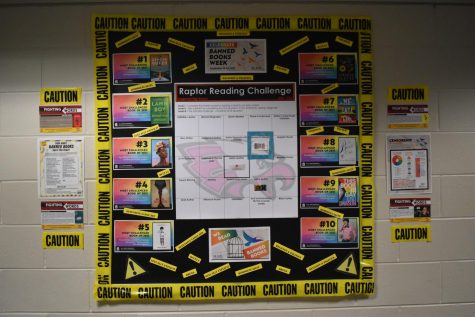
“In a way, I wish that we would not have to celebrate Banned Books Week because it would mean that no books are getting challenged are banned,” said Hawkins.
All books provide an opportunity for people to read and learn about different perspectives in this world. One person may not agree with the content in the book but someone else may agree and connect with it. All books should be left on the shelves so that people can have access to them without any restrictions.

Crystal Li is a senior at Eaglecrest, returning to Nest Network for her third year as a part of the editorial staff. As a leader, Crystal is determined...


